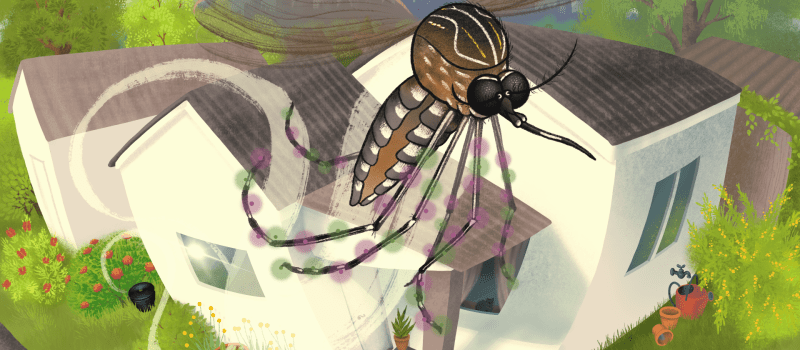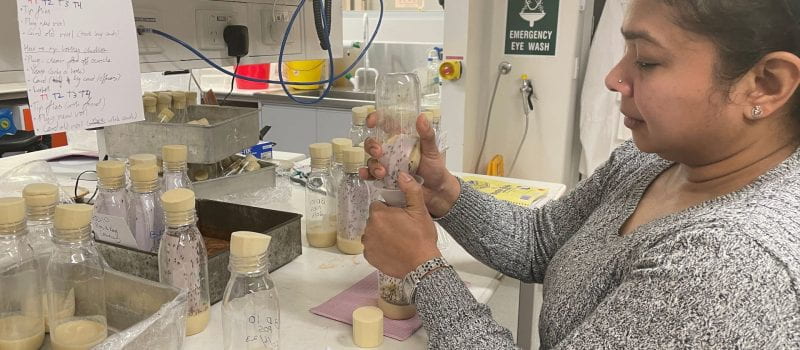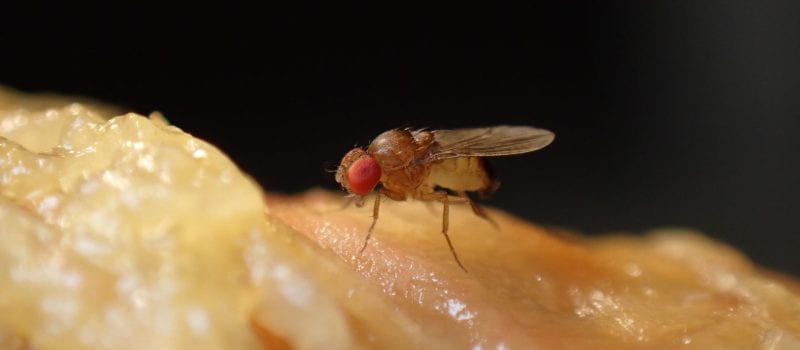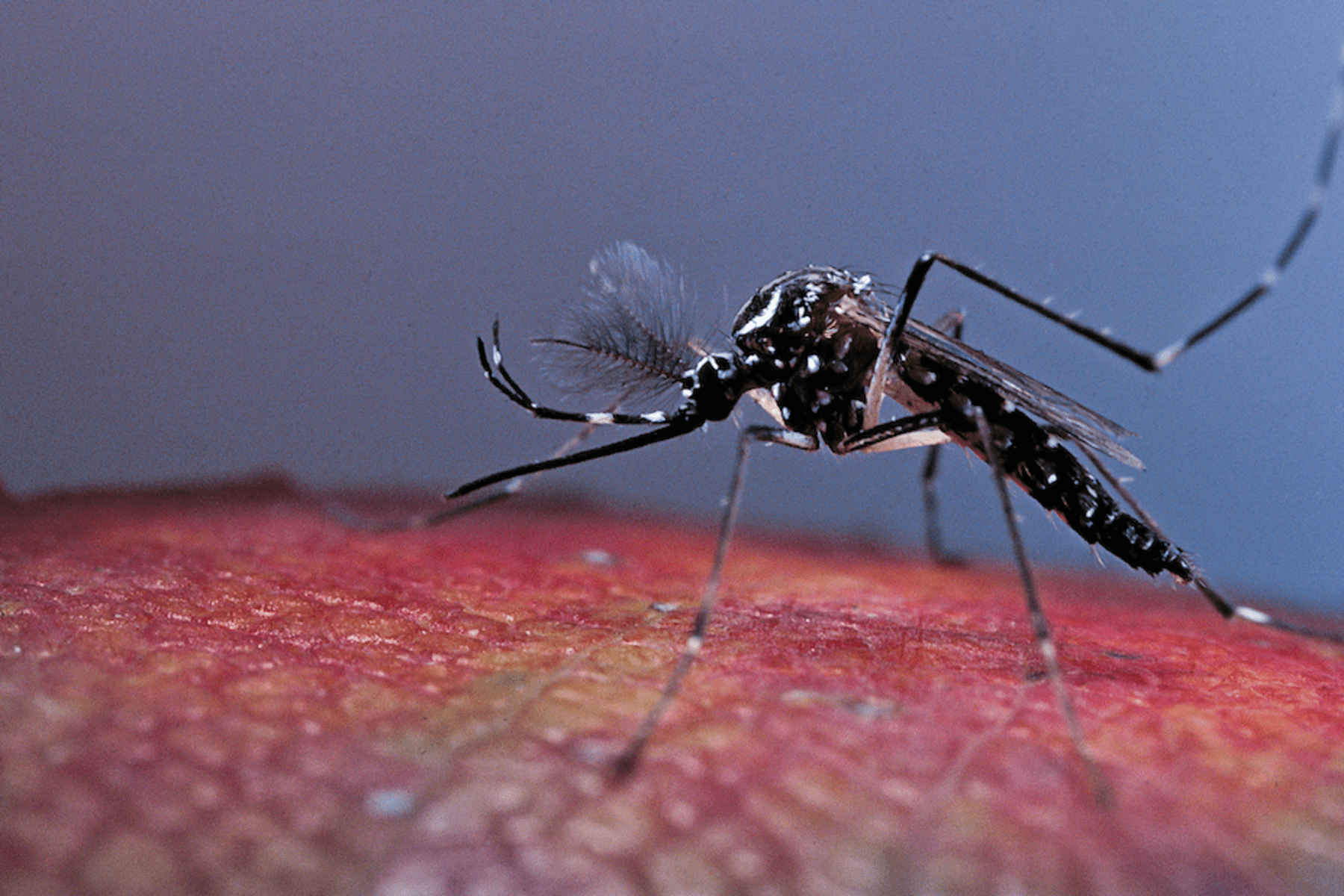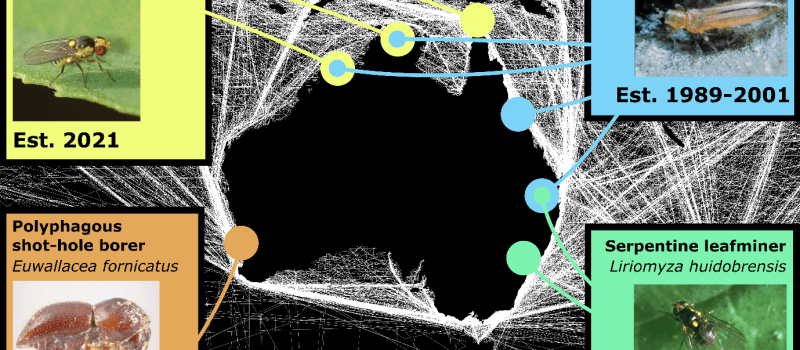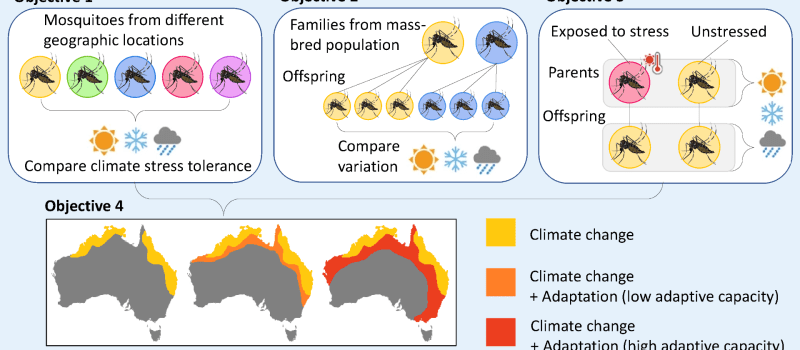Véronique Paris, Liam Ferguson, Nicholas Bell and Ary Hoffmann Banner: Marianne Coquilleau Mosquito-borne diseases like dengue and Japanese encephalitis may feel like far-distant nightmares for many Victorians. Here, the warmer summer months coinciding with the mosquito season are more synonymous with backyard BBQs and backyard cricket than the smell of tropical strength repellents and mosquito […]
By Aiswarya Sankar I was so excited when my nomination for a work integrated learning at the Pest & Environmental Adaptation Research Group (PEARG) was accepted. I had never been to a work integrated learning before and as a Diploma in Lab Techniques student at RMIT, it was a fantastic opportunity for me to spend […]
Curious about the progress in managing insect pests in Australian grain crops? Don’t miss the GRDC’s latest podcast episode to catch up on the headway made by the Australian Grains Pest Innovation Program, as Associate Professor Paul Umina provides an update on the ground breaking research currently underway. Tune in here. It’s estimated the Australian grains […]
Hiromi Yagui, Michael Kearney & Ary Hoffmann Most grasshoppers can fly and some, notably locusts, can travel thousands of kilometres. However, there is a whole family of grasshoppers in Australia that can’t fly at all, and they are not very good at hopping either. These are the morabine (or ‘matchstick’) grasshoppers, comprising around 240 species […]
Dr Perran Stott-Ross and Professor Ary Hoffmann Artwork by Tank Monsternova https://www.monsternova.art/ This article was first published on Pursuit. Read the original article. The more we learn about the biological world, the more complex it becomes. Nowhere is this more apparent than in recent discoveries about the ways in which microorganisms influence their hosts. The […]
By Véronique Paris, Nick Bell and Professor Ary Hoffmann This article was first published on Pursuit. Read the original article. It’s evening and you’re just starting to relax after a hectic day. Just as you do, you hear the unmistakable high whine of a circling mosquito. It’s something most of us are used to in […]
With all the wet weather in the South and East of Australia there is a surge in interest in the various insects enjoying the conditions. Here Eddie is interviewed on ABC Riverland, you can skip to 2:16:10 to hear the discussion.
Molecular biosecurity: Genomic databanks for managing invasive pests – Tom Schmidt Insect pests frequently establish invasions in Australia or are detected as incursions at borders, but little is often known about where they’ve come from or how best to manage them now they are here. One way to investigate these questions is to sequence and […]
Predicting the future threat of mosquitoes under climate change – Perran Stott-Ross Mosquitoes are major global pests, transmitting harmful pathogens to humans and livestock and causing significant nuisance biting. Climate change will lead to unprecedented temperature increases in Australia, shifting the habitats that are suitable for mosquitoes. Insects are capable of rapid evolution, but we […]
Ann J. Stocker Scaptodrosophila are a diverse group of flies whose appearance is very similar to the widespread and widely studied Drosophila. The genus is estimated to have diverged within the drosophilid lineage during the Cretaceous period about 70 million years ago. It was originally considered a subgenus of Drosophila and called Pholadoris in earlier […]
